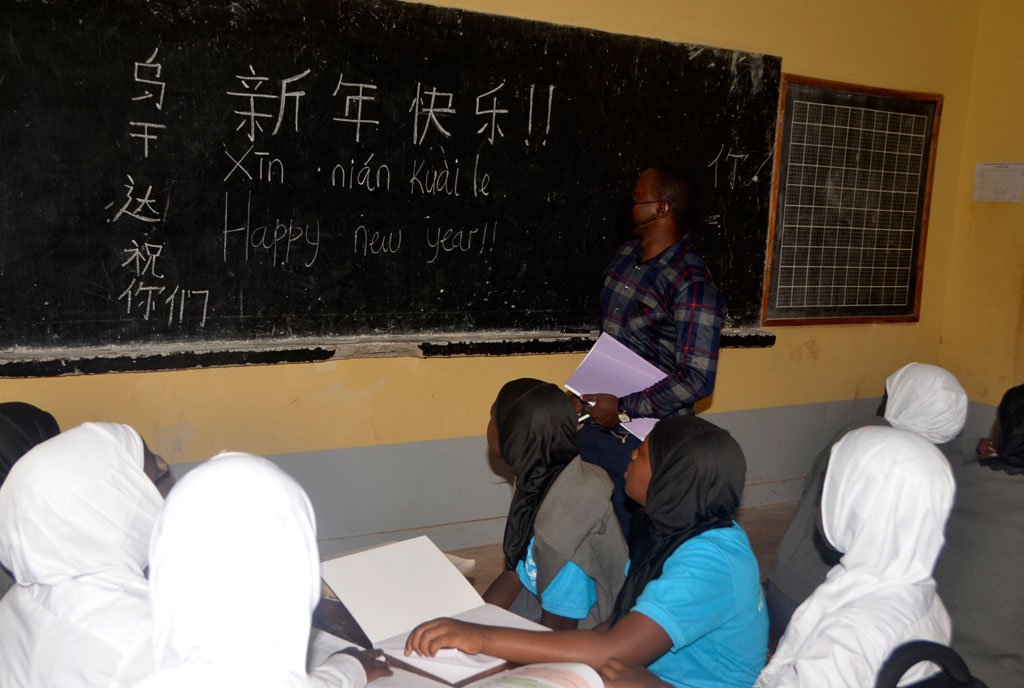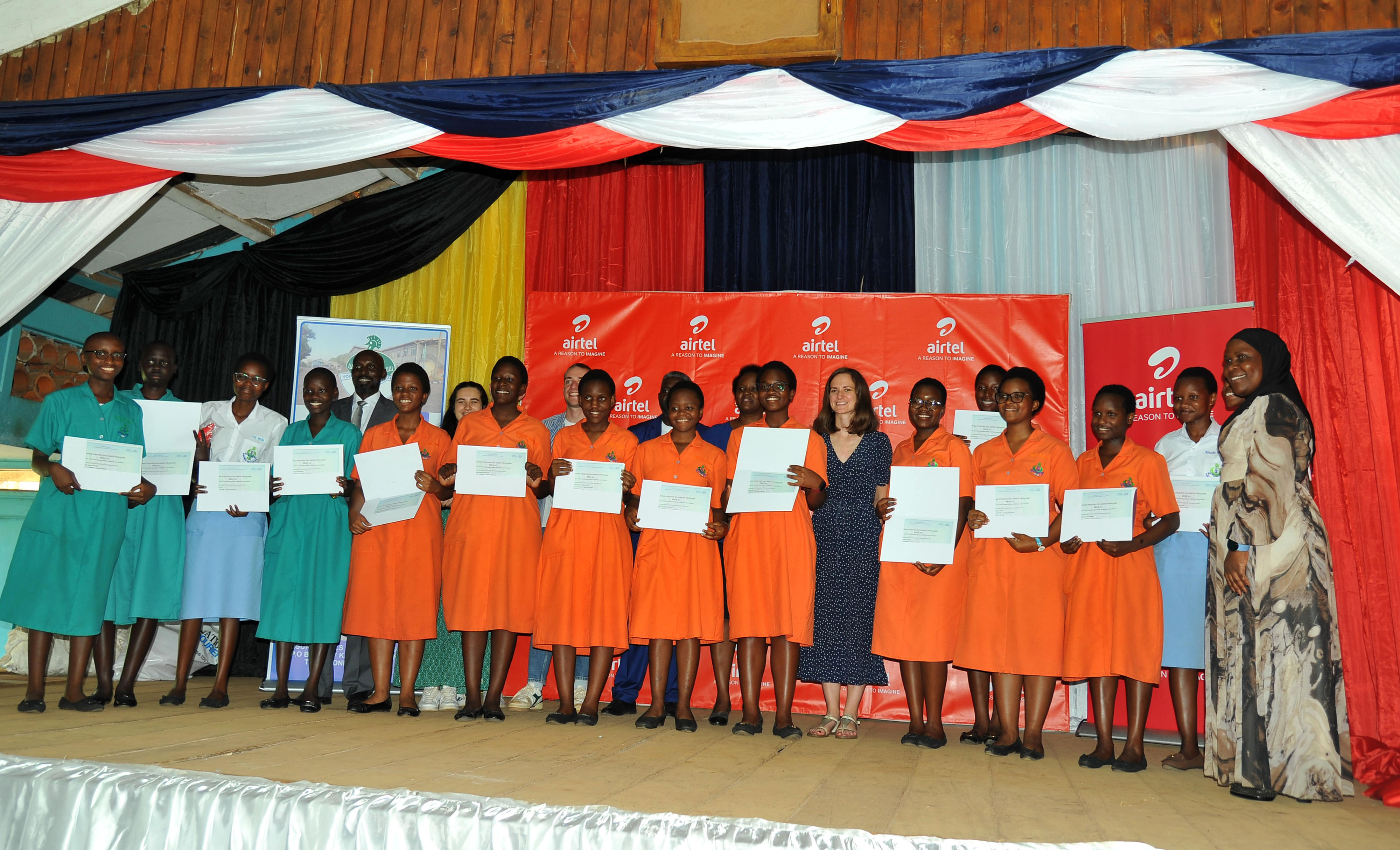Each Ugandan should speak three languages - experts

A schoolteacher teaches Chinese calligraphy to students to mark the Chinese Lunar New Year at Kawempe Muslim Secondary School in Kampala, Uganda, Feb. 1, 2022. PHOTO/AFP
What you need to know:
- This, he said, hinders their capacity to interact with diverse individuals, conduct business, and secure employment opportunities within and outside the country
Language experts have advised that each Ugandan should speak at least three languages if they are to thrive in the competitive global village.
Speaking on the sidelines of the recently concluded 3rd Language Association of Eastern Africa conference, Mr Boaz Mutungi, a lecturer in the Department of African Languages and the coordinator of Kiswahili Subject, at Makerere University, said many Ugandans are limited to using only two languages.
This, he said, hinders their capacity to interact with diverse individuals, conduct business, and secure employment opportunities within and outside the country.
The conference was held under the theme: “Empowering communities through language research and teaching for sustainable development” .
“Uganda through its tri-lingual policy aims at achieving a population where every individual can linguistically speak three languages, the mother tongue at the local level, regional level using languages like Kiswahili so that they can communicate across the borders and any other international language, be it French or English. Three is the minimum but whenever you learn more languages, you will be at an advantage, ”Mr Mutungi said.
Prof Edith Natukunda Togboa, the head of School of Languages, Literature, and Communication Department, College of Humanities and Social Sciences (CHUSS), said the curriculum for local languages must be promoted right from primary level, adding that these children are expressive, curious and can read content directly without translation.
Prof Natukunda said the School of Languages was in the process of introducing more local languages.
“We are already teaching Luo, Luganda, Swahili, and Runyakitara, but we are also proposing to introduce Lusoga, Lumasaba, Lugbara and Ateso. We have already drafted the curriculum and we shall be able to introduce them as soon as possible,” she said.
She added that although the government had put in place good education policies, implementation has been poor.
Ms Susan Nyanga –Azuruni, the Literacy and Education Consultant at SIL Africa Kenya, said Africans must have a positive attitude towards learning local and regional languages.
Ms Nyanga Zuruni said although Kiswahili has been around for decades, very few Africans have bothered to learn it.
Mr Emmanuel Furaha, a lecturer at Moi University, Kenya, said it is important to promote African languages as a unifying factor that will check regional conflicts.
“If we have a common language for Africans or East Africans, it will be easy for people to communicate, and change their attitudes towards each other. We know for a fact that people categorise others. They say this is a Ugandan, this is a Kenyan, but language will unify us,” Mr Furaha said.




